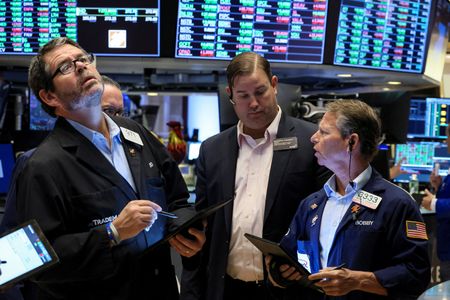The stock market started the day on an upbeat note, rebounding from oversold conditions. The factors supporting early upside momentum included strength in the mega cap stocks, a drop in Treasury yields, and weaker dollar. Each of these factors has reversed course, however, and so has the stock market. The rebound effort was completely reversed by late morning.
The 10-yr note yield, which was at 3.80% shortly before the stock market opened, now sits at 3.98%. The 2-yr note yield, which was at 4.20% shortly before the open, now sits at 4.28%. The uptick has been driven in part by stronger than expected new home sales data for August and consumer confidence for September. The US Dollar Index, at 113.57 before the open, has climbed to 114.35 with EUR/USD -0.3% to 0.9584 and GBP/USD flat at 1.0688.
Mega cap leadership had been an important support factor early on, but faded away as Microsoft (MSFT) and Alphabet (GOOG) fell to new 52-week lows.
Ten of the 11 S&P 500 sectors sit in negative territory currently. The utilities (-1.4%) and consumer staples (-1.1%) sectors show the steepest losses.
Energy (+1.2%) sits in the green as oil prices trade up. WTI crude oil futures are up 1.7% to $77.97/bbl.
Small cap stocks are holding up better than their larger peers. The Russell 2000 trades flat versus a 0.6% decline for the S&P 500.
There’s been some mixed Fed speak for market participants to digest today. Chicago Fed President Evans (not an FOMC voter) acknowledged to CNBC Europe that he is a little nervous that the Fed is moving too much, too quickly, but added that he remains “cautiously optimistic” that the U.S. can avoid a recession.
In contrast, Cleveland Fed President Mester (FOMC voter) said policy rates need to be at a restrictive level for longer to bring inflation down and to make sure inflation expectations do not move up. St. Louis Fed President Bullard (FOMC voter) said the U.S. has a serious inflation problem and that the credibility of inflation targeting is at risk, according to Bloomberg.
Reviewing today’s economic data:





